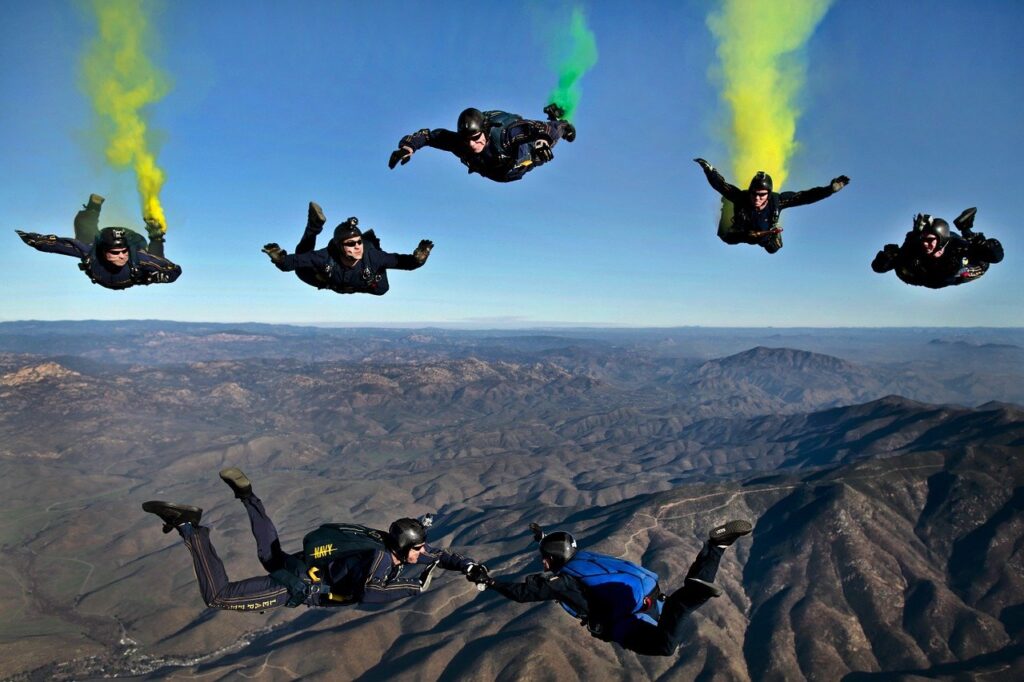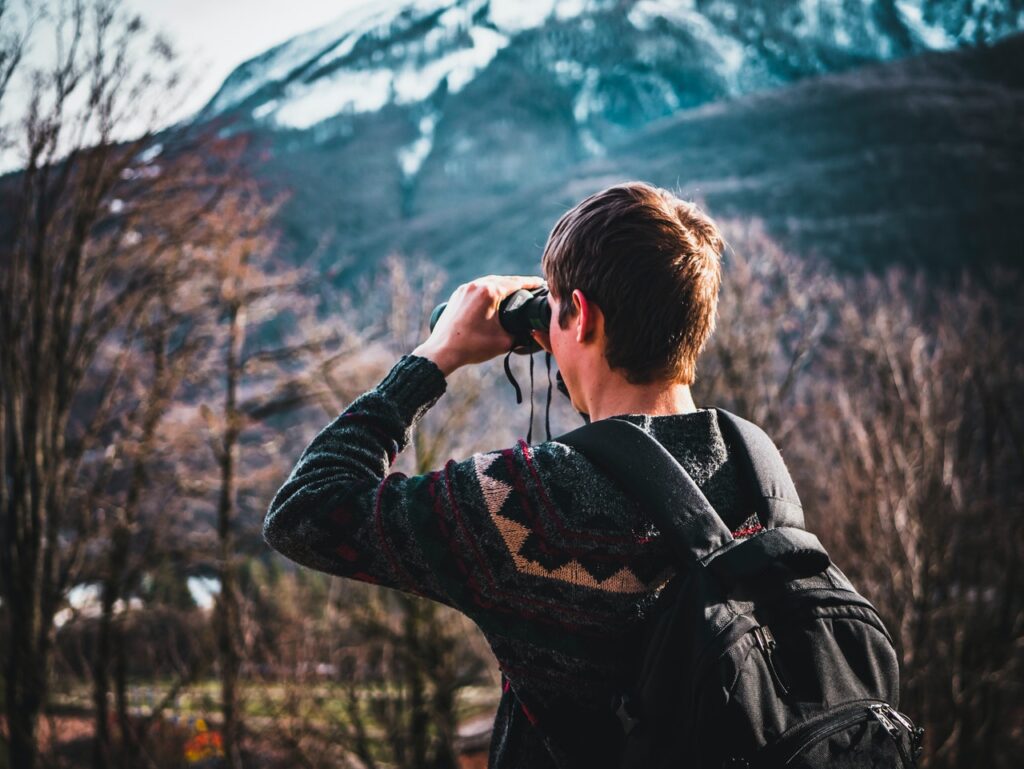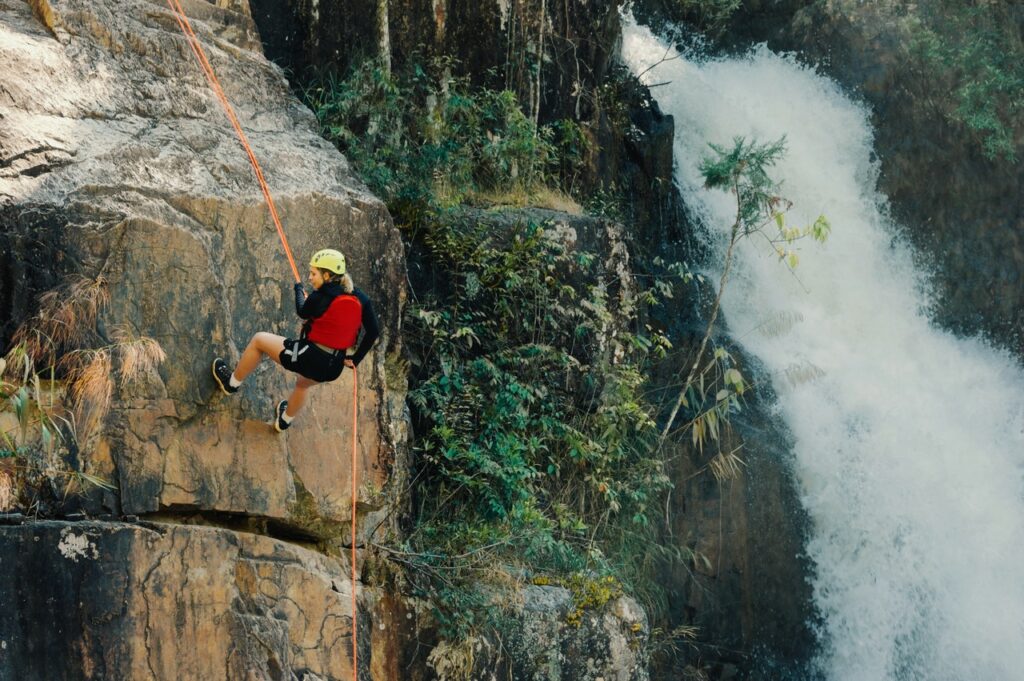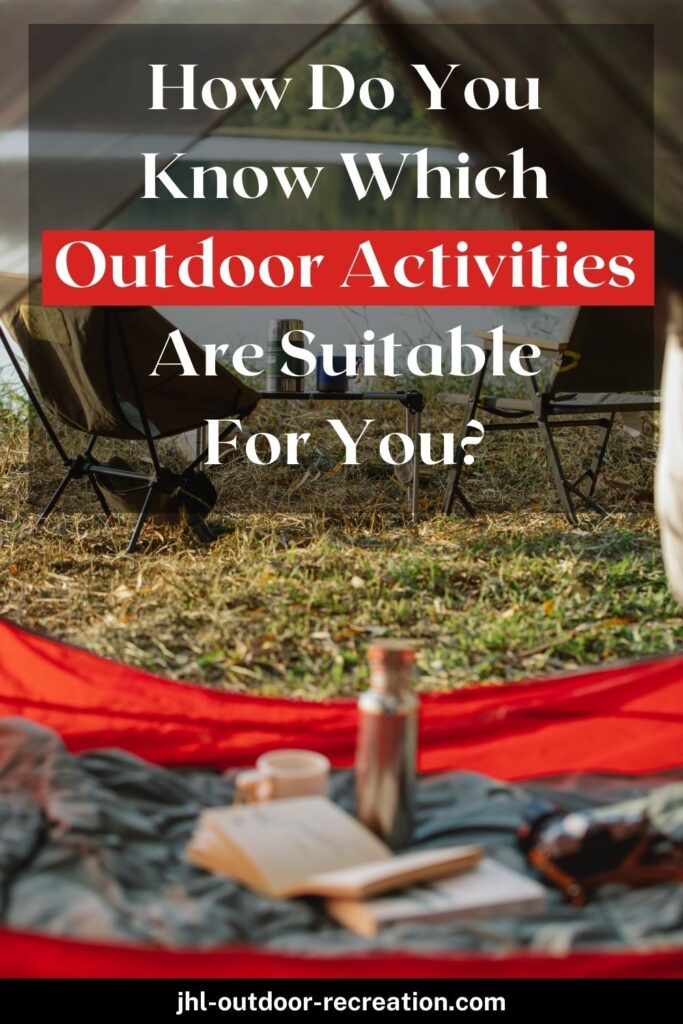Outdoor activities are good for everyone. You know it. Everybody knows it.
So, you Google search the list of outdoor activities. It turns out that there are tonnes of outdoor activities. Every blog post gives various outdoor activities.
Though it is overwhelming, you cherry-pick and go for it.
It’s great. But, what about consistency? – That’s the real question you have to think.
Many people give up after a few tries. Some friends of mine joined me for dragon boat paddling. They seemed to enjoy it. But, they gave up right after the FIRST paddling session.
Clearly, they don’t think dragon boat paddling is right for them.
To fully enjoy outdoor activities, we need persistence. And, we need to choose the RIGHT outdoor activities for ourselves, perhaps our family as well.
And there are some thoughts to know which ONE is right for you!
Fret not! You’ll know how to choose the right outdoor activity for you and your family in this post.
1. Personality

Speaking of “outdoor activities”, what would you think of?
Many people imagine a group of outgoing people enjoying the activities together. They socialize, make friends, and have a lot of small talks.
To them, outdoor activities are for EXTROVERTS. Likewise, INTROVERTS seem not going along with these, because they are antisocial, like to stay at home, and are bookworms. – That’s how society perceives them.
As an introvert, I beg to differ. Yes, we recharge ourselves by having solitude. But, it doesn’t mean we have to stay indoors and isolate ourselves. – And I’m not a bookworm, either.
In fact, I believe going outdoors with our close friends are perfect to recharge ourselves. Yes, small group, because big group is too much.
What it means
Outdoor activities truly are for everyone, whether you are an introvert or extrovert. Both introverts and extroverts enjoy outdoor activities.
As an extrovert, you might really enjoy skateboarding, basketball, surfing, beach volleyball……
As an introvert, you might really enjoy the exquisite solitude due to the nature of some outdoor activities. These include fishing, picnic, gardening, birdwatching and photography……
2. Status
Generally, people think outdoor activities are personal. They love and enjoy themselves. But, they seldom extend their enjoyment and share with their family.
In fact, it doesn’t matter if you are single, married, or having a family. Why?
What it means
Different outdoor activities cater to different status. Outdoor activities are also perfectly fine for family bonding and dating. Here’s how.
Watching movie, shopping, having dinner…… Sick and tired of the boring dating routine? Why not try something different? Try tandem kayaking, pair hiking, or tandem cycling.
And want to have a quality time with your family? It’s time to put away the phones and tablets. Try canoeing, picnic or visiting a zoo.
Not only can you spend quality time with your kids, but can also improve your parenting skills.
3. Risk appetite

Whatever we do, we face risk. For example, we cross the street and we might get hit by the cars. Or, while we are driving, we might face accidents.
But, why are we still doing them, despite the risks? Simple. Because we ACCEPT the risk, as doing the simple tasks help us achieve our purpose. – The risks are within our acceptance level.
Likewise, outdoor activities have WIDE range of risk. Let’s compare a walk in the park and skydiving.
Obviously, the risk of skydiving is much greater than a walk in the park. But many people are still obsessed with skydiving.
That’s because skydiving is extremely exciting. And they are willing to accept the risk to enjoy the excitement.
What it means
It boils down to whether you are Risk-Averse or Risk-Taking.
Ask yourself, what level of risk can you accept? Obviously, the above are extreme examples. Many activities fall within the range.
If you are risk-averse, you may avoid those extreme activities such as whitewater kayaking, skydiving, diving, etc.
But, those activities are PERFECT choices for risk takers.
The point here is, assess the risk and choose the one that matches with your risk appetite.
4. Number of people
“The more the merrier” We hear this often. After all, humans are social animals. We need interaction. We feel secured and confident while in a group. – But, is it always true?
Many people, including myself, prefer GROUP outdoor activities. These include hiking, cycling, football, dragon boat paddling, rock climbing……
Let’s face it. Everyone is busy. So, what should we do if others are unavailable?
What it means
Would you rather go SOLO? It sounds terrifying yet exciting. You lose the sense of security. And yet you have the liberty.
To me, I enjoy solo hiking. I don’t have to care about other people schedule. And I can go hiking whenever I want.
Guess what? Sometimes it’s frustrating when someone rejects your hiking suggestion due to certain reason. And you can do it right away!
I also like solo day trip around the town. I like to explore and look for hidden gems (both foods and place). And I do it all by myself!
The point here is, expect that other members might be unavailable. Then, ask yourself whether you are OK on your own. – Talk about the uncertainty that you might need to deal with on your own.
Or, you could go solo jogging or swimming, for instance, as they are quite safe.
5. Expectation

Modern life is so hectic and stressful. We keep racing against others so that we are not losing. Our mind never stops. It keeps working.
That’s why we need outdoor activities. They are fun and stress relief. They let our mind calm and our body have a break and recharge.
So, we tend not to “think” and use our brain as much as possible.
That’s not entirely true. In fact, some people prefer using this moment to gain knowledge and learn something new. – After all, different people have different expectation.
What it means
Everyone can reduce stress from outdoor activities. But, some do more than that.
For example, having a day trip can let you observe the normal life and culture of the residents. You understand how they work and contribute to the economy and tourism industry.
Or, visiting a zoo makes your family and you further understand the features of different types of species. For instance, you know penguin in general, but can you differentiate the types of penguin?
Or, birding and forest photography make you appreciate the special species of flora and fauna.
So, if you are studious who likes to observe and learn, the above are great options.
6. Time and cost
You spend time and money on outdoor activities. However, the level of spending differs, depending on the types of outdoor activities.
For instance, you need half or 1 hour for jogging; you need a few weeks for backpacking.
And, you don’t need to spend any money for a walk in the park; you need to spend thousand dollars on the golf gear and membership.
What it means
You have to be clear to yourself. How much are you willing to spend for outdoor activities?
And this depends on your SCHEDULE and FINANCIAL STATUS.
You might adore golfing because of Tiger Woods. You think golfing is really cool and you can make money from it. But, do you know that golfers invest a lot of time and money in refining their skills?
Are you willing to invest that amount of time and money?
Many people get involved in certain outdoor activities without realizing the time commitment and potential cost.
It makes them irrationally spend the time and money for the first few sessions. But, they are bored and give up. And the money is wasted!
Before getting into any outdoor activities, try to think of the potential time and cost. See if you can accept it.
7. Skill requirement

Many outdoor activities have low skill requirement for entry level. Meaning, beginner can get involved without any experience.
As an example, you don’t need any special skills for jogging. You can start jogging right away.
Some outdoor activities, though, have high skill requirement for entry level. In other words, beginners need certain skills before trying the activities.
These include swimming, rock climbing, whitewater kayaking, etc. To get the skills, you may need to attend classes.
What it means
This goes back to the time and cost. Be clear to yourself: are you willing to spend the time and money to gain the skills?
Many people attempt these without proper lessons, but end up having injuries or accidents. You don’t want to be that person, do you?
After all, if you are keen to learning, these will motivate you to go further, rather than stopping you.
If otherwise, you might consider these: jogging, hiking, birding, or picnic.
8. Nature & location
Outdoor activities have 3 main categories, ie. land, water, and air.
Amongst these, air is rare yet the most extreme. Guess what? Skydiving, parachuting, and parasailing belong to this category.
The other two, land and water, are the common categories which we always consider.
What it means
This has to do with the place where you stay. You need to consider the transportation.
For example, if you stay far from rivers or lake, kayaking may not be a feasible option. You don’t want to drive for 3 hours (1 way) and kayak for 1 hour and return.
Meaning you spend 6 hours on travelling! That’s crazy! – Unless you are really determined on kayaking.
Ideally, look for those outdoor activities which are close to your house. This helps you maintain your motivation.
Remember, we need to do it always. So, reduce the travelling time as much as possible. Otherwise, we feel burdensome by doing this.
9. Disability

The Olympic Games are the biggest sport events in the world. Everyone is obsessed with them. Although I love the Olympic Games, I find the sister events, The Paralympic Games more intriguing.
If you watched the Paralympic Games, literally you would find the athletes astounding. You could feel their determination and effort. Some people even cry and are touched by their performance.
That’s the spirit of para athletes. Not only do they overcome their disabilities, but they shine or even outperform ordinary people like us. – That’s the spirit that we need to learn from them.
And yet, we presume outdoor activities are not for disabled people. But, is this true?
What it means
We can’t deny that disabled people face challenges when it comes to outdoor activities. Like those public facilities. These are not “friendly” enough.
But, this doesn’t mean they can’t enjoy outdoor activities. In fact, it’s possible to MODIFY some activities, such as wheelchair cycling and modified swimming strokes.
I encountered a group of disabled people while hiking. I remembered there was a hiker without legs hiking all the way up to the summit. And he used his arms! – That was astounding!
What about visually impaired or blind people? They couldn’t see as we could. Does that mean they should just sit at home? – I hope you don’t think like that……
Again, if you watched the Paralympic Games, you’d notice there are various visually impaired disciplines. Meaning, they could also play sports!
Same goes to outdoor activities. Do you know that blind people can hike and run too? Guide Running and Guide Hiking are for them. Meaning there is a guide to guide them while running and hiking.
And they can swim and play basketball, football, etc like we do!
So, whenever a disabled person is into any outdoor activities, try to support him and assure that he can make it like ordinary people.
Then, seek proper modification and find a guide for him, if necessary.
10. Season
While most of the outdoor activities are evergreen, some could be seasonal.
For example, sightseeing or having a picnic during cherry blossom season. And that is spring in Japan.
Or, you want to watch the fall of maple leaves during the fall.
Or, you want ice skiing or ice skating during the winter……
What it means
You might be interested in Adventure Tourism.
So, you have to check the best season for the best outdoor activities in the particular countries.
Do some research and plan your itinerary accordingly.
Another example would be trekking to Annapurna Base Camp (ABC). Hikers avoid trekking to ABC during the monsoon season. Hence, avoid trekking to ABC between June and August.
Final thought: outdoor activities for everyone
Outdoor activities cater to different people based on their needs. And their needs are based on their personality, investment in time and cost, risk apetite, status etc.
Likewise, when you see a long list of outdoor activities, don’t be overwhelmed. Essentially, just know your personal need and choose the one that is right for you.
When we say outdoor activities are for everyone, we mean it. No exception, even for disabled and visually impaired people.
All they need is proper modification on the outdoor activities. They could enjoy just like us!
So, do you think outdoor activities are for everyone?
Relevant posts
